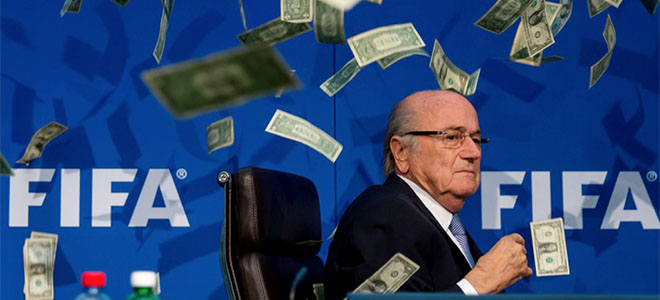Transparency International
July 24, 2015
by Roger Pielke, Jr.
Hisao Tanaka, president of Toshiba Corporation, and two top executives resigned after an independent investigation found that earnings had been improperly inflated by US$1.2 billion under his watch.
Simultaneously, FIFA’s president Sepp Blatter announced that he was staying on for another seven months, despite the arrest of numerous top FIFA officials and widespread corruption on his watch. FIFA appears to be looking to Domenico Scala, who is on the FIFA payroll, to lead a new reform effort.
The vastly different approaches to investigation by Toshiba and FIFA help to illustrate the difference between an accountable organisation and one that plays by its own rules. Here is a recap of what Toshiba did leading up to the leadership resignations:
Upon learning of possible wrongdoing, Toshiba set up a “Special Investigation Committee” chaired by the chair of its board of directors. This committee included experts from outside Toshiba.
Upon learning of the scope of possible wrongdoing, this is what Toshiba did (more details here):
In order to further enhance the confidence of stakeholders in the results of the investigation, the company has decided to change the framework of the investigation from one conducted by the current Special Investigation Committee to one conducted by an Independent Investigation Committee that conforms to the guidelines prescribed by the Japan Federation of Bar Associations (JFBA) by being composed solely of fair and impartial outside experts who do not have any interests in the company.
How were the members of the Independent Investigation Committee chosen?
The members of the Independent Investigation Committee are currently being selected from among experts in the fields of law and accounting, based on the recommendations of the outside members of the Special Investigation Committee, and the company plans to promptly disclose the composition of the Independent Investigation Committee (IIC) once the selection process has been concluded. Read more …


